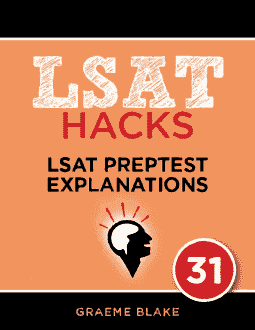QUESTION TEXT: Several recent studies establish that most people…
QUESTION TYPE: Weaken – Exception
CONCLUSION: Several studies have established that most people would want to be informed if they had a serious medical condition.
REASONING: In each study over 80% of people said they would want to be told.
ANALYSIS: Sometimes people don’t tell the truth in surveys. It may not be intentional, but few people really want to hear bad news. That’s one way to weaken the argument.
The right answer says that the surveyors weren’t medically trained. It’s irrelevant who does a survey as long as they do it well.
___________
- This shows that survey results are contradictory. The studies can’t conclusively establish the truth.
- If people may be lying then we can’t trust the survey results to establish the truth.
- CORRECT. This is irrelevant as long as the studies were properly conducted.
- This biases the survey questions. People would tend to answer yes because they want to be seen as reasonable.
- The conclusion is about “most people.” But we have a very unrepresentative sample: young psychology students. They may have different views than the general population.


I answered D, obviously wrong, but does this mean that the question is asking technically, which answer strengthens the argument?
Good question! It’s actually not the same as a strengthen question. You can view the spectrum of answers like this:
weaken <-- neutral --> strengthen
On this question, anything on the left, in weaken is wrong. The right answer will be neutral, or strengthen. So middle or right. Does that help? The right answer is “not in weaken”.